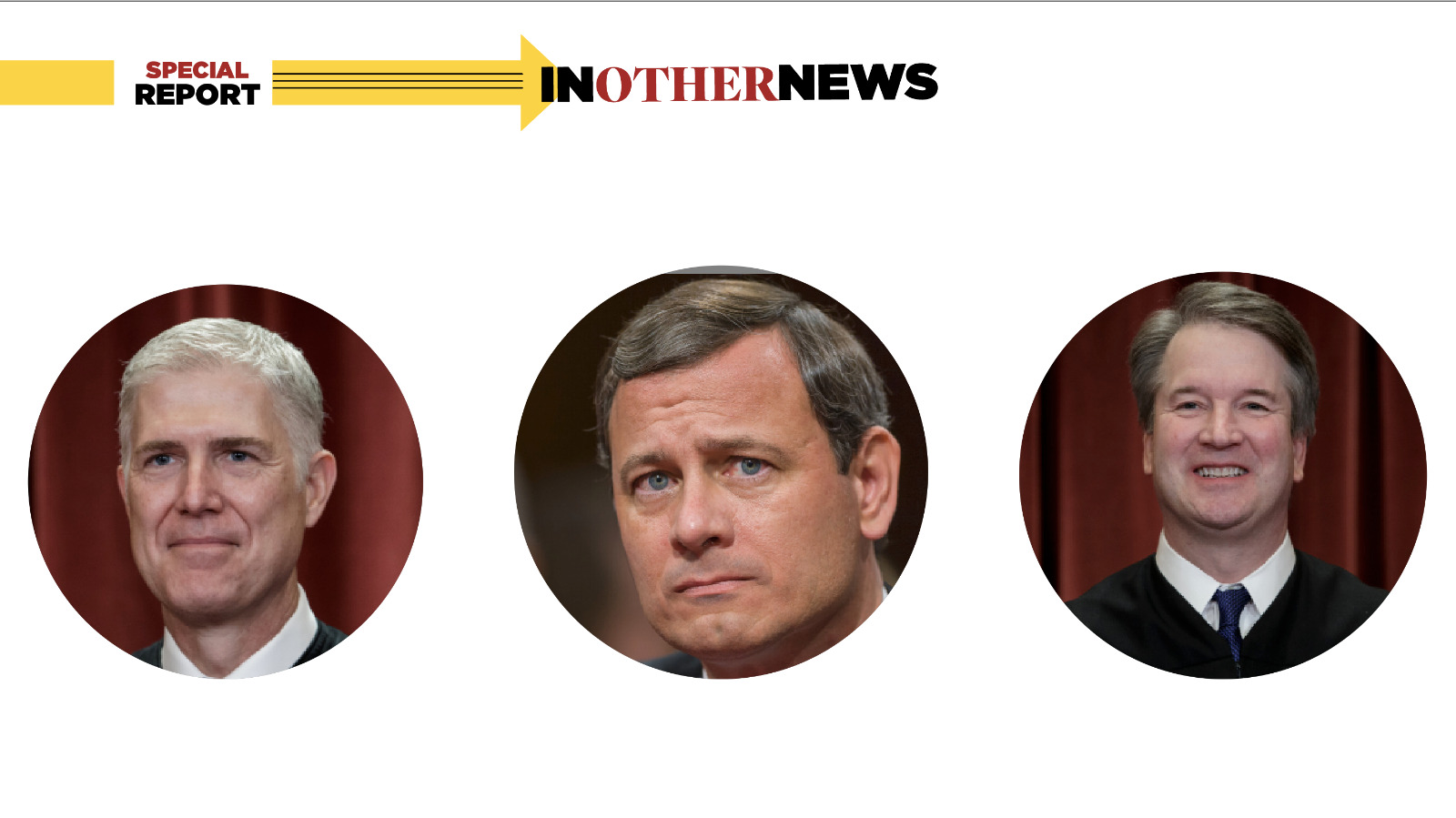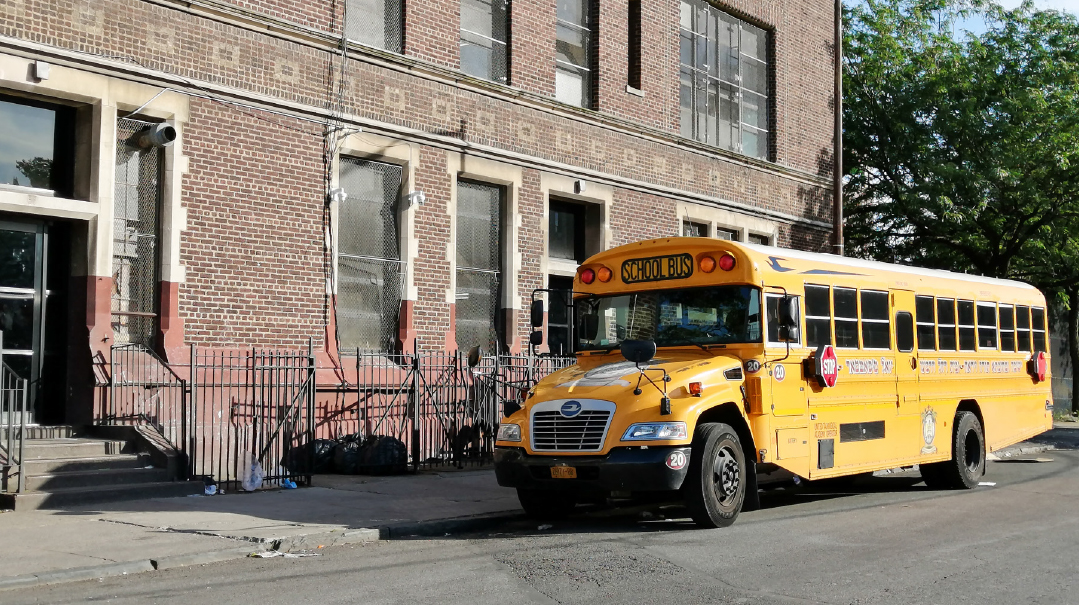Religion a Winner in Supreme Court

“This is the best Supreme Court I’ve seen for Orthodox Jews in my lifetime”

Religious Americans can be excused for feeling besieged by a growing wave of progressive elements, but the recently concluded US Supreme Court session resulted in significant victories and robust protection for religious liberties.
Attorney Nathan Lewin, founder of the Washington DC-based family law firm Lewin and Lewin LLP, and author of the many briefs filed for the National Jewish Commission on Law and Public Affairs (“COLPA”), took that one step further.
“This is the best Supreme Court I’ve seen for Orthodox Jews in my lifetime,” said Lewin. For more than half a century, Lewin has built a well-deserved reputation as Orthodox Jewry’s foremost advocate at the Supreme Court, arguing dozens of cases, filing hundreds of friend- of-the-court (amicus curiae) briefs, and forming personal friendships with several justices.
“The decisions the court rendered in this term in regard to religion, and those they will be rendering in the coming term, are monumental steps forward in terms of protecting the rights of Orthodox Jews,” Lewin said.
We will review the main rulings shortly, but while I had Lewin on the phone, I inquired about some of the sharp criticism both President Trump and Vice President Pence have leveled on the court, questioning whether Trump is getting his “money’s worth” out of his two picks — Neil Gorsuch and Brett Kavanaugh — especially with Gorsuch having joined the court’s liberals in the Bostock v. Clayton County gender discrimination case.
“I am not among those who think that their ruling in Bostock was terrible,” Lewin said. “They took a reasonable approach that will be helpful in terms of how the word ‘religion’ will be interpreted in the Civil Rights Act.”
Conservatives disappointed with former president Bush’s selection of John Roberts, who also joined court liberals in Bostock, not to mention in upholding Obamacare in 2012, would be advised to hold their fire too.
“I am not a critic of Chief Justice Roberts,” Lewin says. “He is very conscious that he is not just one vote on the Supreme Court, but that he is the Chief Justice of the United States (his constitutional title). Roberts is very carefully drawing the line so that the court is not viewed as partisan, or in Trump’s hip pocket, even though there are five solid conservative votes. Even in the subpoena cases involving Trump’s tax records, Roberts has drawn very fine lines. We can disagree with his bottom line on some of them, but they’re very reasonable positions.”
Lewin walked me through the three most important rulings on religious liberties in the Supreme Court’s recent session.
1) THE CASE: Our Lady of Guadalupe School v. Morrissey-Berru and St. James School v. Biel
Two Catholic schools, dissatisfied with the performance of two teachers, declined to renew their contracts. The teachers sued, claiming employment discrimination. These cases turned on how broadly to apply the “ministerial exception,” a constitutional rule requiring courts to refrain from adjudicating on hiring and firing decisions at religious institutions.
THE JUDGMENT
The Supreme Court ruled 7–2 that the schools could fire the teachers without defending the firings in court. Justice Samuel Alito cited sections of Lewin’s amicus curiae brief in his majority opinion that “Judaism has many ‘ministers’ and that the term ‘minister’ encompasses an extensive breadth of religious functionaries in Judaism.”
HOW JEWS BENEFIT
“The ruling protects the religious institutions,” Lewin explains. “If the ministerial exemption didn’t apply, the teacher could go to court [like Morrisey-Berru did] and say I wasn’t fired because I didn’t teach well, I was fired because I’m too old and this is age discrimination. With the expansion of the ministerial exception, the school can say, no, you were fired because you violated religious rules or were a bad teacher and that issue can no longer be litigated in a secular court.”
Lewin also noted that Stephen Breyer and Elena Kagan, two liberal Jewish justices, joined the conservative majority, showing that 7 of 9 justices are defenders of religious liberties.
2) THE CASE: Bostock v. Clayton County
Three different employees sued their employers under Title VII of the 1964 Civil Rights Act claiming they were fired because of their choice of gender identity or orientation. Legal experts have expressed concern that the ruling might force religious organizations to accept an LGBT employee’s conduct and orientation even if it violated the organization’s religious beliefs.
THE JUDGMENT
The Supreme Court ruled 6–3 in favor of the employees, in a ruling which stunned religious groups who were anticipating a much different decision from a court with a conservative majority.
HOW JEWS BENEFIT
A month later, Lewin referenced Bostock when filing an amicus curiae on behalf of COLPA in Small v. Memphis Light, Gas and Water. Small is suing the utility for alleged violations of federal disability and civil-rights law after the company reassigned him to a new position where the work schedule conflicted with his attendance at church. What’s the connection between Bostock and Small? “Bostock says gender is not just what you were born with but also how you act pursuant to that gender, and this is all protected under the Civil Rights Act, If you use the same approach to the word ‘religion,’ and thereby include religious observance and religious orientation, someone who was discriminated against at work because he observes Shabbos will enjoy similar protection under the original language of the 1964 Civil Rights Act.”
3) THE CASE: Espinoza v. Montana Department of Revenue
The Montana legislature enacted a tax credit scholarship program, but the state’s Department of Revenue barred families from using the scholarship at religious schools. Kendra Espinoza, a working single mother of two girls at a Christian school sued, alongside two other plaintiffs. The Montana Supreme Court concluded that because the tax-credit program violated the state constitution’s “Blaine Amendment” by funding religion, the entire scholarship program was invalid. Espinoza took the case to the Supreme Court.
THE JUDGMENT
By a 6–3 vote, the Supreme Court reversed the Montana Supreme Court, noting that while a state need not subsidize private education, once its legislature decides to do so, it cannot disqualify some private schools solely because they are religious.
HOW JEWS BENEFIT
While the court held that the First Amendment’s Free Exercise Clause “protects religious observers against unequal treatment” and opposes “laws that impose special disabilities on the basis of religious status,” Lewin says this was only a partial victory: “Espinoza v. Montana has gotten a lot of publicity but it involved a very unique decision by the Montana court. The court majority did not take the big step of saying every ‘Blaine Amendment’ is unconstitutional.”
The “Blaine Amendment,” as it’s called, was introduced by House Speaker Blaine in 1875 as a bigoted attempt to prevent a wave of Catholic immigrants from establishing a religious foothold in the United States. While the attempt to put it into the US Constitution failed in the Senate, 38 states subsequently adopted “mini Blaine Amendments” or “no aid” rules to religious schools. These remain in force in some 17 states.
Lewin says that unfortunately there is no pending test case that could possibly “throw Blaine out the window once and for all.” Nor is there a test case on the horizon that could overrule the 1971, 8–1 ruling in Lemon v. Kurtzman, which declared unconstitutional Pennsylvania and Rhode Island laws that reimbursed private schools for salaries of teachers who teach secular subjects.
“It’s my ambition while I’m still alive to see Lemon v. Kurtzman overruled,” Lewin says. “When a family sends its kids to a religious school because the parents are exercising their First Amendment right, the kids’ chemistry and math teachers should be paid by the state like those teachers are paid at public schools because the state says we won’t accredit your school unless you teach chemistry and math,” Lewin argues (as he did in 1971 in a COLPA amicus curiae brief when the Supreme Court considered Lemon v. Kurtzman).
(Originally featured in Mishpacha, Issue 823)
Oops! We could not locate your form.













